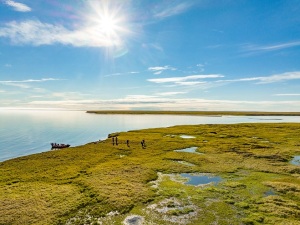 Today the 1 February 2023 at 15.00-16.30 a workshop will be held on CETEcosystem-Atmosphere Interactions – Energy balance and Greenhouse GasA gas found in the earth's atmosphere that traps heat radiated from the surface of the earth, and causes the earth's temperature to rise. The term comes from the fact... More flux Networks.
Today the 1 February 2023 at 15.00-16.30 a workshop will be held on CETEcosystem-Atmosphere Interactions – Energy balance and Greenhouse GasA gas found in the earth's atmosphere that traps heat radiated from the surface of the earth, and causes the earth's temperature to rise. The term comes from the fact... More flux Networks.
Data on energy balance and GHG fluxes is needed to improve the accuracy of prediction of future climateThe average weather we would expect over a long period of time (seasons, years, decades). Climate varies from place-to-place across the Earth. Climate is determined by long-term (over at least... More scenarios. Over the past decades Earth System Models has begun to include climateThe average weather we would expect over a long period of time (seasons, years, decades). Climate varies from place-to-place across the Earth. Climate is determined by long-term (over at least... More feedback mechanisms from e.g. ecosystemAll the living organisms (including people) in an area as well as its physical environment, functioning together as a unit. An ecosystem is made up of plants, animals, microorganisms, soil,... More GHG exchange and energy budgets in the predictions of the future climateThe average weather we would expect over a long period of time (seasons, years, decades). Climate varies from place-to-place across the Earth. Climate is determined by long-term (over at least... More, e.g. as used in IPCC reports.
INTERACT stations represents the full spectrum of instrumentation, i.e. from no monitoring of fluxes to State-of-the-Art infrastructures adhering to international standards, and some have even been at the forefront of the development of instrumentation and guidelines. This ‘State-of-the-Art’ seminar will give an overview of existing flux networks on global and regional scales, provide details of what it takes to be part of a regional flux organisation, and provide information on where to start if the station has not previously worked with monitoring fluxes.
